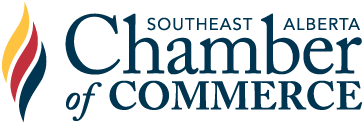Modernization of Alberta Registry Agents

Modernization of Alberta Registry Agents
Finance & Taxation - Provincial Policy
Sponsor: Medicine Hat
Co-Sponsor: Grande Prairie
Issue
The Government of Alberta regulates the Alberta Registry Agents’ (ARAs) Regulation by capping the fee amounts for most of the services they provide. In addition, Registry Agents are eager to develop a modernization plan to enhance services, including online registry services to Albertans in conjunction with Service Alberta and other stakeholders. The Government of Alberta should support these modernization efforts and review regulations to ensure Alberta Registry Agents can continue their vital work effectively.
Background
Alberta’s Authorized Registry Agents form a network that collectively employs over 1,500 Albertans. There are 217 Agents located in 150 Alberta communities (58 or 27% are in Calgary and Edmonton, 48 or 22% are in small municipalities, and 111 or 51% are in rural municipalities). Registries are a vital part of Albertan communities in providing economic growth, stable jobs, important community links, and essential services.
Albertans value registry services and continue to take advantage of the ease of access offered by local registry agents. In survey findings, 74% of respondents have visited a registry agent in the last year. Furthermore, over 90% of respondents expressed the importance of having access to registry services located in their communities and felt that it would have a negative impact on their communities if their local Registry Agent were to close.1
As registry services modernize to meet the needs of our society, Albertans must continue to have equal access to quality in-person registry services, regardless of where they live in the province. A healthy industry ensures ongoing service to Albertans throughout the province at an affordable price. Eight registry offices have closed in the last two and a half years and many more communities are at risk of losing their local registry. An independent third-party audit found that registry agents who have an annual volume of 10,000 transactions or less are operating at a loss, which represents sixty-four registries.
Unlike other similar provincially regulated industries, there is no regular mechanism to review government capped registry service fees. In order for the registry agent network to position itself to serve the diverse needs of all Albertans, it is essential for a fee review model be put in place that includes regular and predictable reviews of capped service charges that provides financial stability and long-term assurance of sustainability. Between 2005 and 2020, registry agents received no increases to capped service fees despite increased cost pressures. A static capped fee restricts registry agents from keeping pace with natural operational increases and limits the amount of capital that can be reinvested into businesses in order to expand and modernize their delivery models in a variety of settings.
A combination of rural, urban, online, and in-person delivery models offered by Registry Agents are needed to provide Albertans services for over 200 products on behalf of five government departments. In order to ensure that registry agents are equipped and can work effectively and efficiently, having the support of the government is crucial. A modern and viable business model needs to be developed to guarantee the levels of service and access is not only maintained but also expanded to reflect the dynamic nature of the industry. Additionally, the Government of Alberta is still in direct competition with Registry Agents for some online services, like traffic fines.
Other organizations also see the value in a new fee review model and the modernization of the industry to ensure the continuance of the high level of service which Albertans have come to expect from their Registry Agents. In 2016, the Alberta Urban Municipalities Association (AUMA) passed a resolution recognizing the “vital role and positive impact that ARAs have in Alberta communities” and recommended the Government of Alberta negotiate a new fee structure and protect ARAs revenue streams.3
The Government of Alberta responded on January 1, 20204 by increasing capped fees only on certain services for the first time in 14 years. However, these changes alone without a long-term sustainability plan do not ensure both a sustainable business model and expansion of services for Registry agents, nor do they provide the support necessary to aid in the modernization of the Registry Agent Industry. The Government of Alberta should recognize the vital role of Registry Agents in the delivery of essential government services to all Albertans, particularly their positive impact in rural Alberta communities, and work to strengthen their partnership with the Association of Alberta Registry Agents and local municipalities.
Recommendations
The Southeast Alberta Chamber of Commerce, along with the Alberta Chambers of Commerce, recommends the Government of Alberta:
1. Support further modernization of the Registry Agent Industry and red tape reduction.
2. Continue to partner with Registry Agents to provide online services and allow registry services to expand online offering; and
3. Ensure the long-term sustainability of Registry Agents, including those serving rural communities, with a fair and equitable service charge model.
Resources
1. Couillard, C. (2019, April 16). Opinion: Registry-agent services under threat by rising costs. Edmonton Journal. https://edmontonjournal.com/opinion/columnists/opinion-registry-agent-services-under-threat-by-rising-costs
2. Alberta Municipalities (2016). Sustainable Support for Local Registry Agents. https://www.abmunis.ca/resolution/sustainable-support-local-registry-agents
3. Government of Alberta. (2019). Fiscal Plan: A plan for jobs and the economy 2019-23. https://open.alberta.ca/dataset/3d732c88-68b0-4328-9e52-5d3273527204/resource/2b82a075-f8c2-4586-a2d8-3ce8528a24e1/download/budget-2019-fiscal-plan-2019-23.pdf
Date Approved: May 2017
Date Amended: March 18, 2020
Date Renewed: May 2020, May 2023
